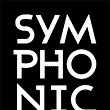Are TuneCore, CD Baby, DistroKid & Symphonic blocking AI Music?
Music created by Artificial Intelligence (AI) comes in almost infinite forms, from light-touch songwriting aids to full-blown “Fake Drake” style deep fake tracks.
At a time when AI is the hottest topic in music, creators are wondering what level of AI creation assistance is acceptable and what companies they trust with their music will refuse to distribute.
As musicians attempt to navigate the murky AI waters, what guidance have their distributors provided? We asked four leaders in indie and D.I.Y. music distribution, and except for one, the answer was “not much.”
Representatives for Tunecore, CD Baby, DistroKid, and Symphonic replied when we asked if they had an AI policy and what measures they were taking to enforce it. We also checked to see if any of these companies had posted AI policies online.

“We have deployed a number of quality controls in our business, and we aim not to distribute any content that is 100% created by AI, whether that’s through Believe or through TuneCore,” Believe co-founder and CEO Denis Ladegaillerie told analysts on a Q1 earnings call recently.
But we could not find any mention of AI on Tunecore.com, and the company would not comment for this story.

CD Baby also would not comment, but its customer Help Center offered this: “You will not be able to distribute A.I.-generated content. Even if the A.I. generator you are using permits commercial use of what you made, there’s no way to ensure unique sounds or rights compliance.”

DistroKid co-founder Phil Kaplan did comment: “DistroKid’s music policy is to comply with the different policies and requirements of each streaming service,” but we could find no guidance for the musicians that use the service posted online.
Only Symphonic CEO Jorge Brea offered a detailed response that included his thoughts as a creator about AI and Symphonic’s policies and efforts to control it.
“If we all want to stop this problem, then we should all talk openly about tools and/or parameters that exist…”
We published it here in full and have added bold to highlight specific passages:

“First, as a music producer, I believe in human creativity and art being created by an individual. I further believe that AI is a tool, much like an instrument or synthesizer is to the music production process.
Sample websites and sample packs, for example, have been around for a long time, and many distributors have music produced utilizing samples that are royalty-free and cleared. While that wasn’t created using AI, a human is taking something that someone else made to create a production.
As long as AI is not being used with malicious intent, such as to represent an artist and/or being used to generate content that directly infringes on someone’s work, and/or lastly, being created using a copyrighted work, then I believe that new methods of music production are helpful.
I do have concerns about music that is badly produced being uploaded to streaming sites and the overall over-saturation that can occur, which will affect royalty payouts. To prevent that, we need to see industry-wide collaboration.
Symphonic has partnered with companies that allow us to scan audio before we deliver it in an attempt to see what matches and prevent infringing content from being distributed, but this is an evolving technology, and if we all want to stop this problem, then we should all talk openly about tools and/or parameters that exist to work together to solve the problem.
Protecting rights holders and what they earn should not be entirely proprietary.
As always, we will keep collaborating with our partners, DSPs, clients, and more to find technologies and processes that will help control bad actors, and I personally don’t believe that anyone has a full-proof system (yet) that can detect that a song is 100% AI vs. being created partially or fully by a human. I‘d love to know about it, utilize it, and implement it, but I personally feel it is easy to say that music can and would be blocked but; as everyone knows, fraudsters and scammers will find creative ways to get around a system, especially with AI.“
Bruce Houghton is the Founder and Editor of Hypebot, a Senior Advisor at Bandsintown, President of the Skyline Artists Agency, and a Berklee College Of Music professor.
I’m making a decent compensation from home $60k/week , which was astonishing under a year prior I was jobless in a horrendous economy. I was honored with these guidelines and presently it’s my obligation to show kindness and share it with Everyone,
.
.
Here is I begun————————————➤ https://goodjobs2.pages.dev/